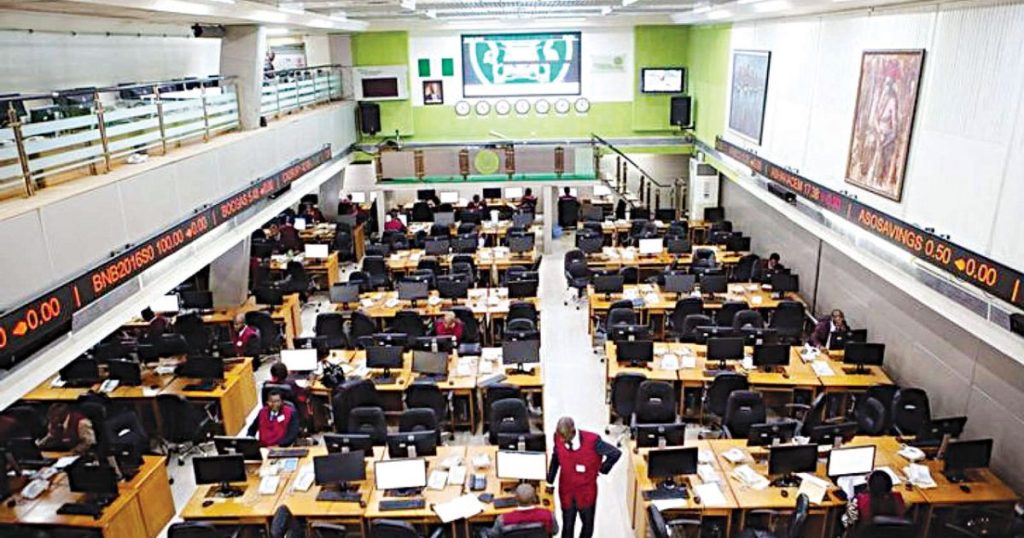On Wednesday, the stock market experienced a significant downturn, closing with a loss of N337 billion for investors. This drop came just after a slight recovery the previous day, marking the first gain after a stretch of six consecutive days of bearish trading. At the end of the trading session, the benchmark index fell by 556.37 points, equivalent to a 0.57 percent decrease, bringing the index down to 96,567.24. Meanwhile, the market capitalization also declined to N58.51 trillion, reflecting a 0.57 percent decrease and leaving the year-to-date returns at 43.01 percent, showcasing a volatile investment environment.
The trading dynamics on the exchange painted a mixed picture as investors continued to engage in sell-offs and portfolio rebalancing activities, despite the modest N131 billion recovery recorded in the earlier session. This trend highlighted a lingering negative sentiment among market participants. Although the overwhelming sentiment leaned towards selling, a total of 20 stocks managed to record gains, outpacing the 21 stocks that declined. Some of the notable gainers included Eunisell, which increased by 9.87 percent; Regency Alliance Insurance, up by 9.30 percent; and Veritaskap, which rose 9.17 percent, indicating pockets of resilience amid the overall market downturn.
Conversely, several major stocks faced substantial losses, with United Bank for Africa (UBA) leading the decline with a 9.99 percent drop, followed by Oando at 9.98 percent, Thomas Wyatt at 9.79 percent, and NASCON Allied Industries and Lasaco, which saw declines of 7.83 percent and 7.50 percent, respectively. The disparity in performance among these stocks exemplifies the selective nature of investor sentiment and highlights the challenges faced by specific sectors and companies within the market framework.
Looking at sectoral performance, some sectors experienced gains, notably the insurance sector, which increased by 0.49 percent, the oil and gas sector with a rise of 0.80 percent, and the industrial goods sector gaining 0.03 percent. On the other hand, the banking sector saw a decline of 0.92 percent, and the consumer goods sector dipped by 0.13 percent. This mixed sector performance reflects the broader trends and investor sentiment that continue to shape trading decisions, further complicating the outlook for the stock market.
The overall bearish sentiment had a noticeable impact on trading activity, with significant drops in the number of deals, trading volume, and overall value. There was a notable decrease of 15.53 percent in the number of deals, a staggering decline of 88.39 percent in traded volume, and a 60.73 percent drop in the value of shares traded. By the end of the session, a total of 418.39 million shares valued at N10.04 billion were exchanged across 9,021 deals, indicating a sharp reduction in market activity.
Sterling Financial Holdings Company Plc emerged as the leader in trading volume, with 79.6 million shares worth N401.9 million changing hands through 126 deals. Furthermore, UBA topped the trade value chart, highlighting the significant activity these stocks garner even during periods of market downturn. The trends observed reflect the complexity of market dynamics in an environment marked by both resilience and vulnerability, underscoring the necessity for strategic investor decisions going forward.














